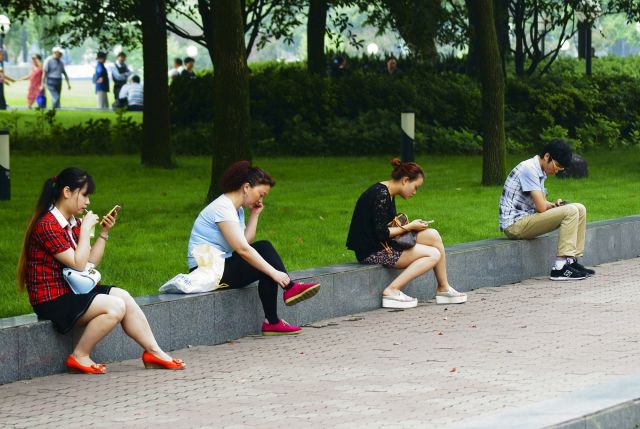Credit Image: Tpg

“I am not a number, I am free man!” declared Patrick McGoohan in The Prisoner. He was right to protest; using a number in place of a name is dehumanising.
But what if the number is more of a score than an identifier – a means of quantifying the value of each person’s life? Arguably, we’re already defined by such numbers: bank balance, body mass index, IQ, etc. But what we don’t have to cope with is a single, state-sanctioned, numeric indicator of our social desirability.
The concept is deeply dystopian, but according to a jaw-dropping report by Rachel Botsman for Wired, it’s about to become fact for the people of China:
“…the government is developing the Social Credit System (SCS) to rate the trustworthiness of its 1.3 billion citizens. The Chinese government is pitching the system as a desirable way to measure and enhance ‘trust’ nationwide and to build a culture of ‘sincerity’. As the policy states, ‘It will forge a public opinion environment where keeping trust is glorious. It will strengthen sincerity in government affairs, commercial sincerity, social sincerity and the construction of judicial credibility.’”
The system is still taking shape, with the government giving “a license to eight private companies to come up with systems and algorithms for social credit scores.”
The sort of data going into these prototype systems includes fairly obvious stuff like financial credit scores and the verifiability of contact details. However, other possible components include an assessment of an individual’s reliability based on the kind of products they purchase. Then there’s social media, a potentially rich source of information – especially about relationships.
Botsman can see the implications and doesn’t like them one bit:
“Posting dissenting political opinions or links mentioning Tiananmen Square has never been wise in China, but now it could directly hurt a citizen’s rating. But here’s the real kicker: a person’s own score will also be affected by what their online friends say and do, beyond their own contact with them. If someone they are connected to online posts a negative comment, their own score will also be dragged down.”
But why would these scores matter? Based on a reading of Chinese government documents, Botsman sets out the consequences of scoring poorly:
“…people with low ratings will have slower internet speeds; restricted access to restaurants, nightclubs or golf courses; and the removal of the right to travel freely abroad with, I quote, ‘restrictive control on consumption within holiday areas or travel businesses’. Scores will influence a person’s rental applications, their ability to get insurance or a loan and even social-security benefits. Citizens with low scores will not be hired by certain employers and will be forbidden from obtaining some jobs…”
But, hang on, aren’t we westerners subject to quite a lot of the same thing? For instance, good luck getting a mortgage if you’ve got a poor credit rating. Also, aren’t we constantly rating one another on various websites? And what about the personal information we give away to social media companies – what are they doing with that?
It’s a point that Botsman concludes on:
“Today China, tomorrow a place near you… If we are not vigilant, distributed trust could become networked shame. Life will become an endless popularity contest, with us all vying for the highest rating that only a few can attain.”
This is a fair and timely warning. Yet the Chinese system represents a difference in kind not just degree. The centralised and soon-to-be compulsory nature of the SCS has no parallel in the West. And nor does the system’s most crucial feature: the fact that information about all sorts of qualitatively distinct things is rolled into a single quantity.
A criminal record, unpaid debts, buying too much alcohol, having the ‘wrong’ friends, sharing unpopular opinions: they all become one – interchangeable points towards a score that will be the first thing that anyone finds out about you and the last thing they forget.










Join the discussion
Join like minded readers that support our journalism by becoming a paid subscriber
To join the discussion in the comments, become a paid subscriber.
Join like minded readers that support our journalism, read unlimited articles and enjoy other subscriber-only benefits.
Subscribe